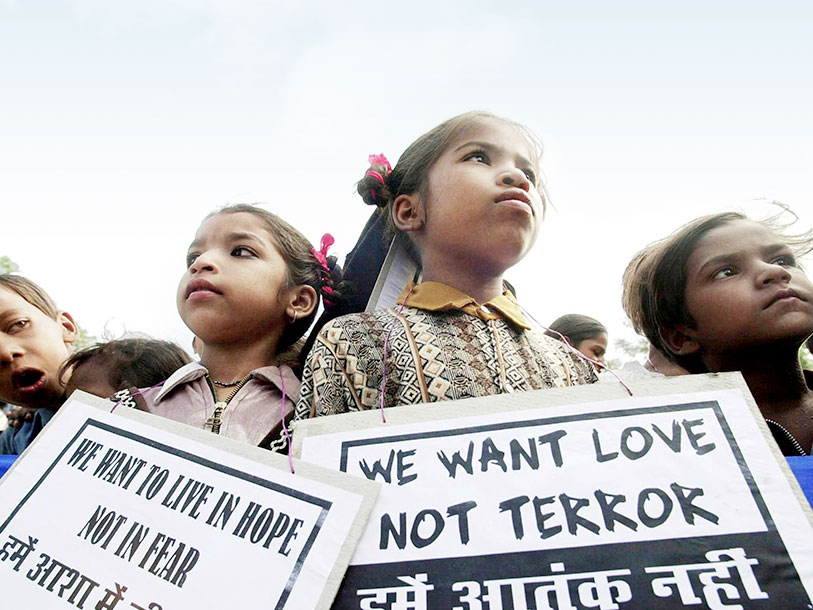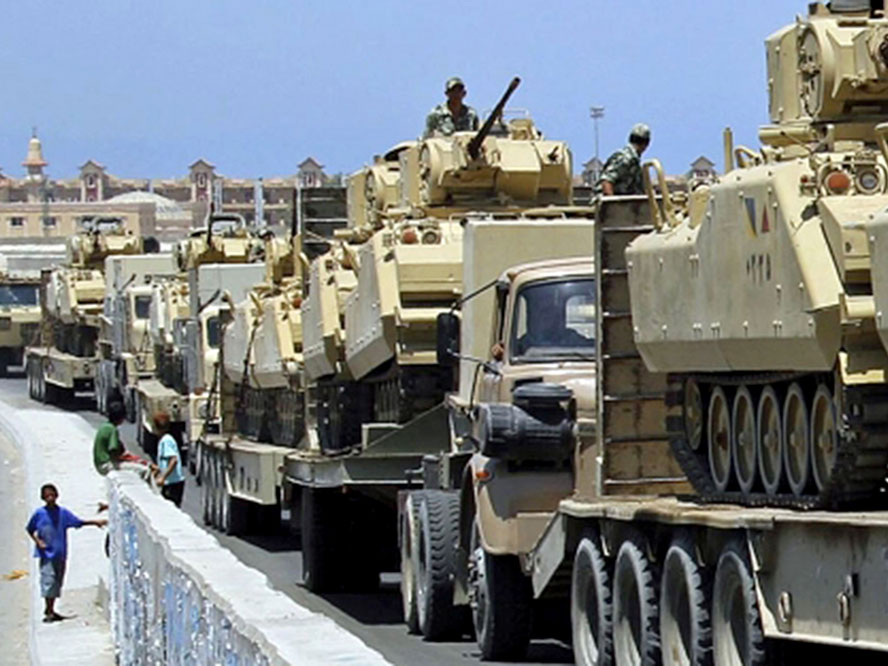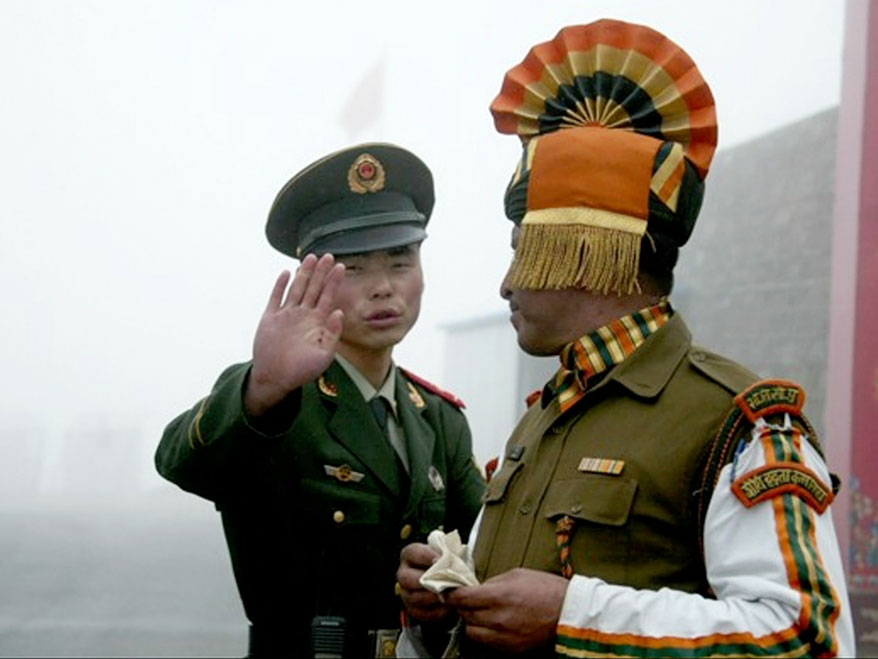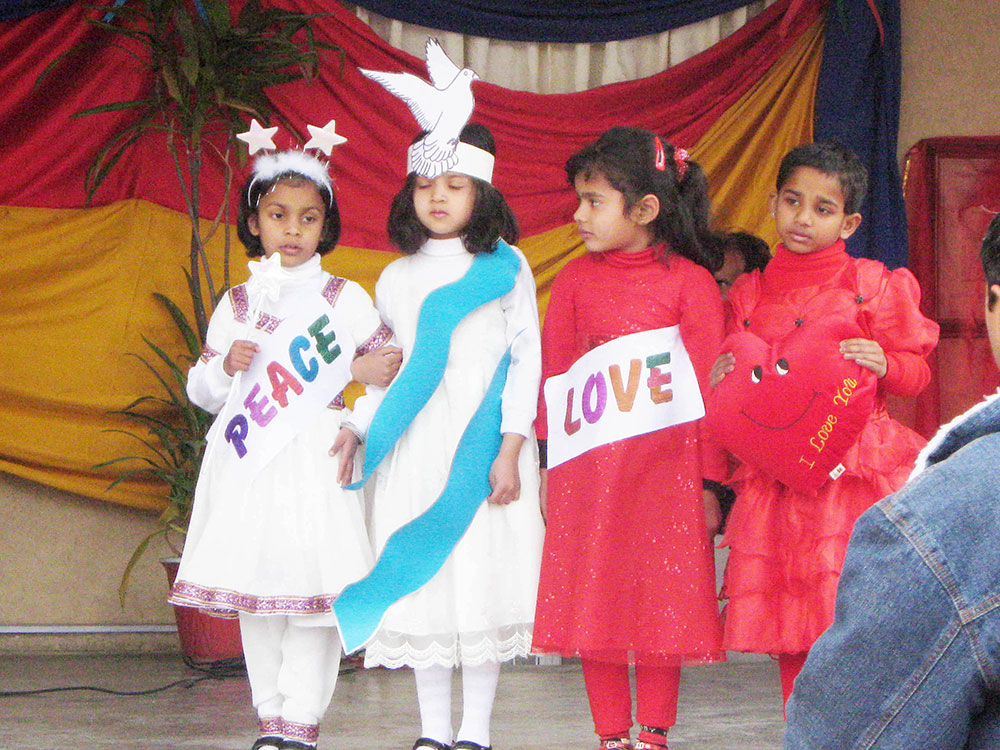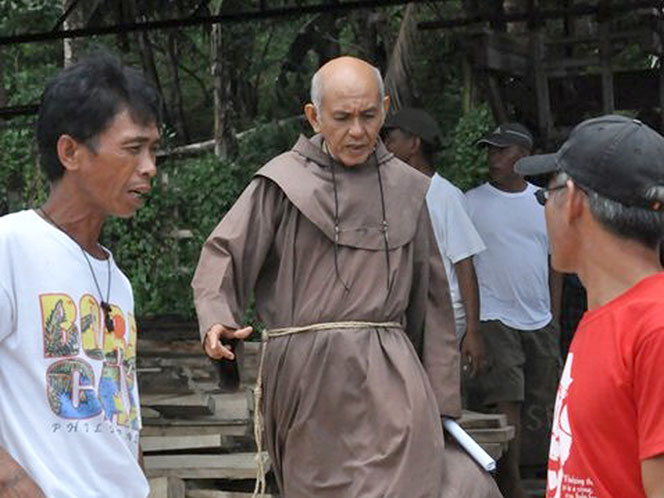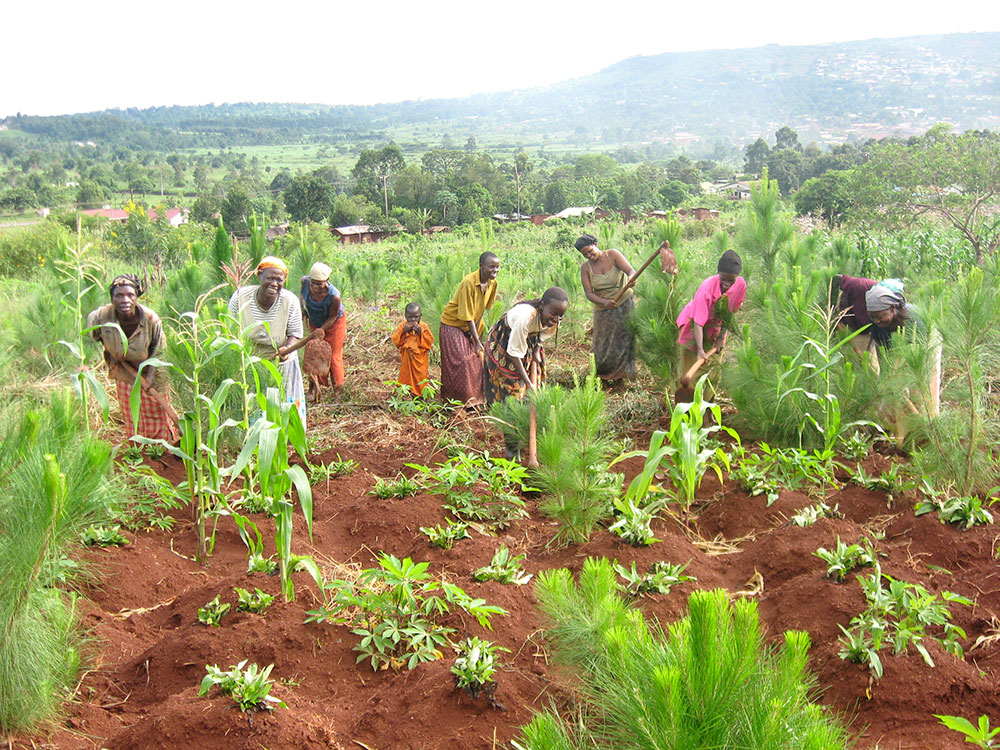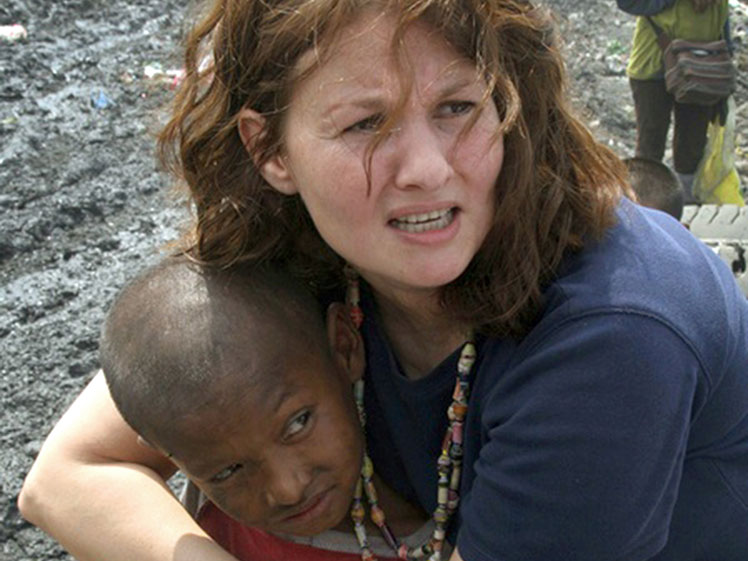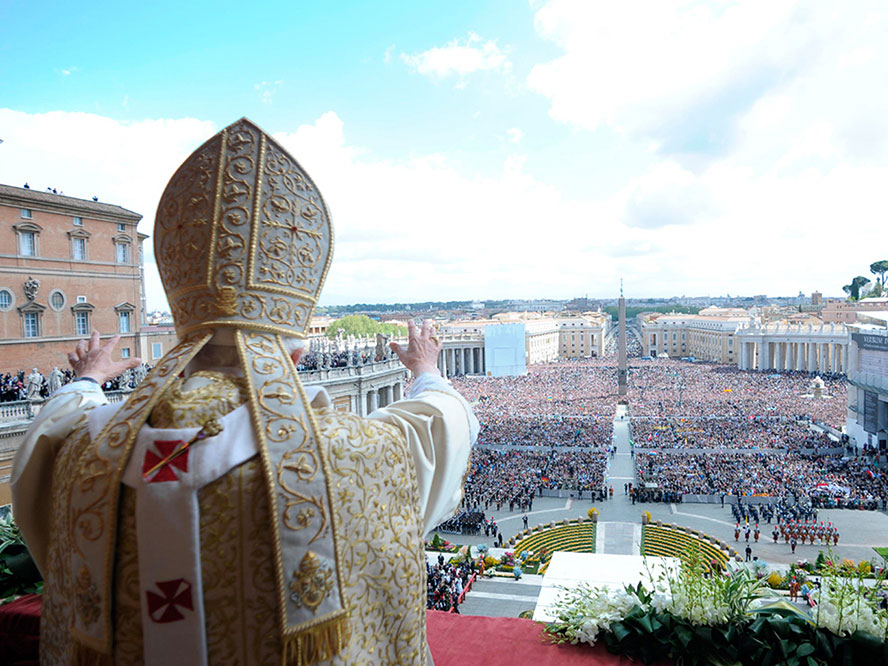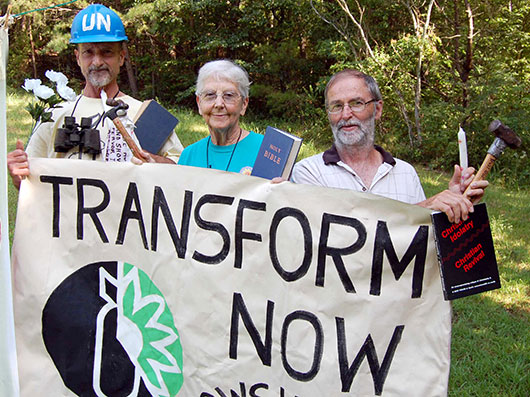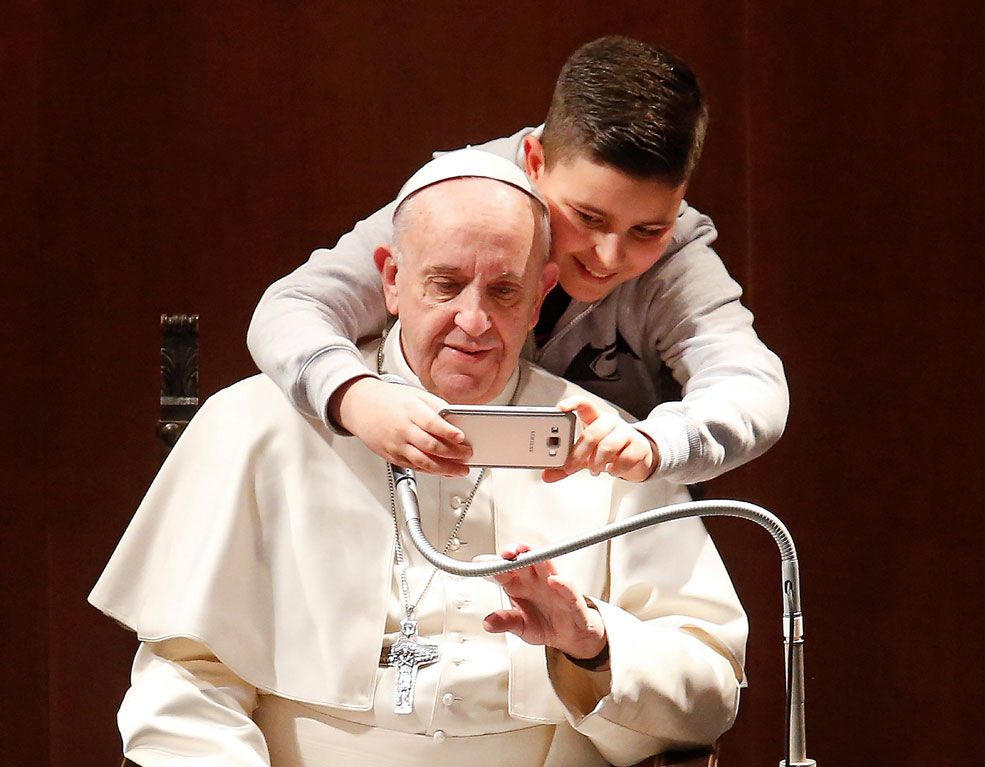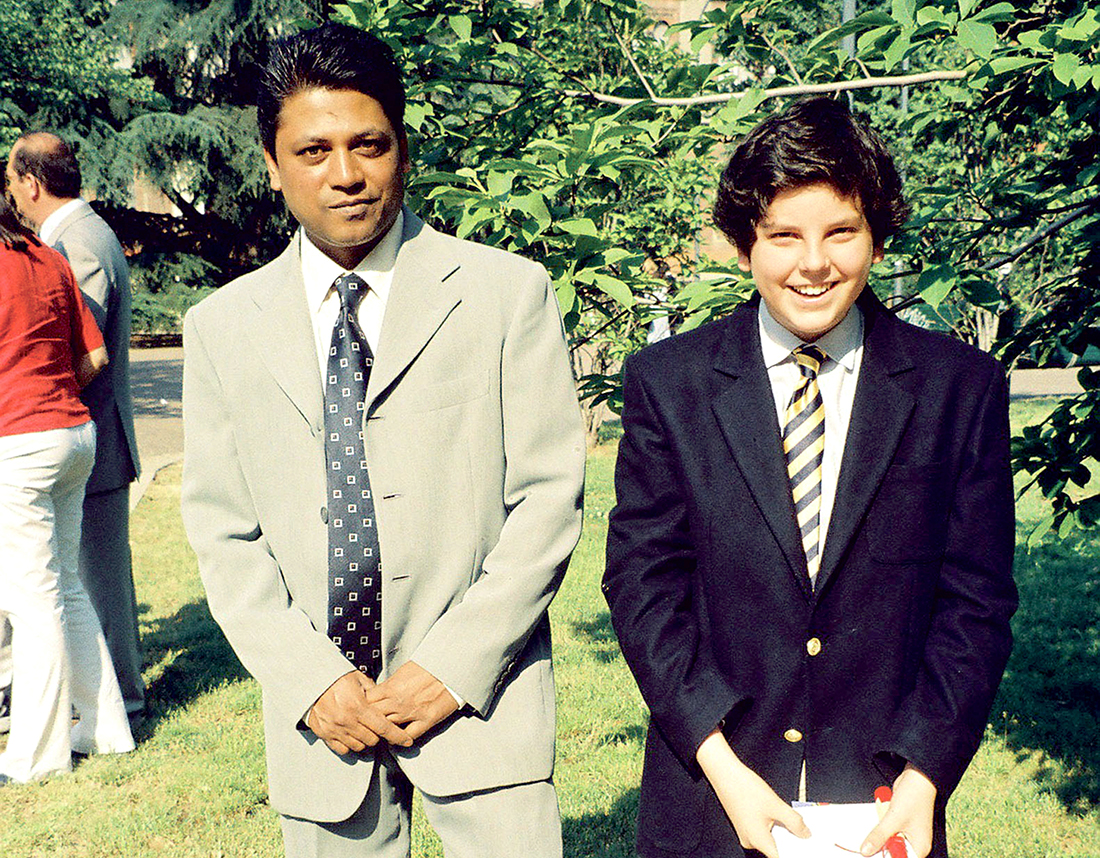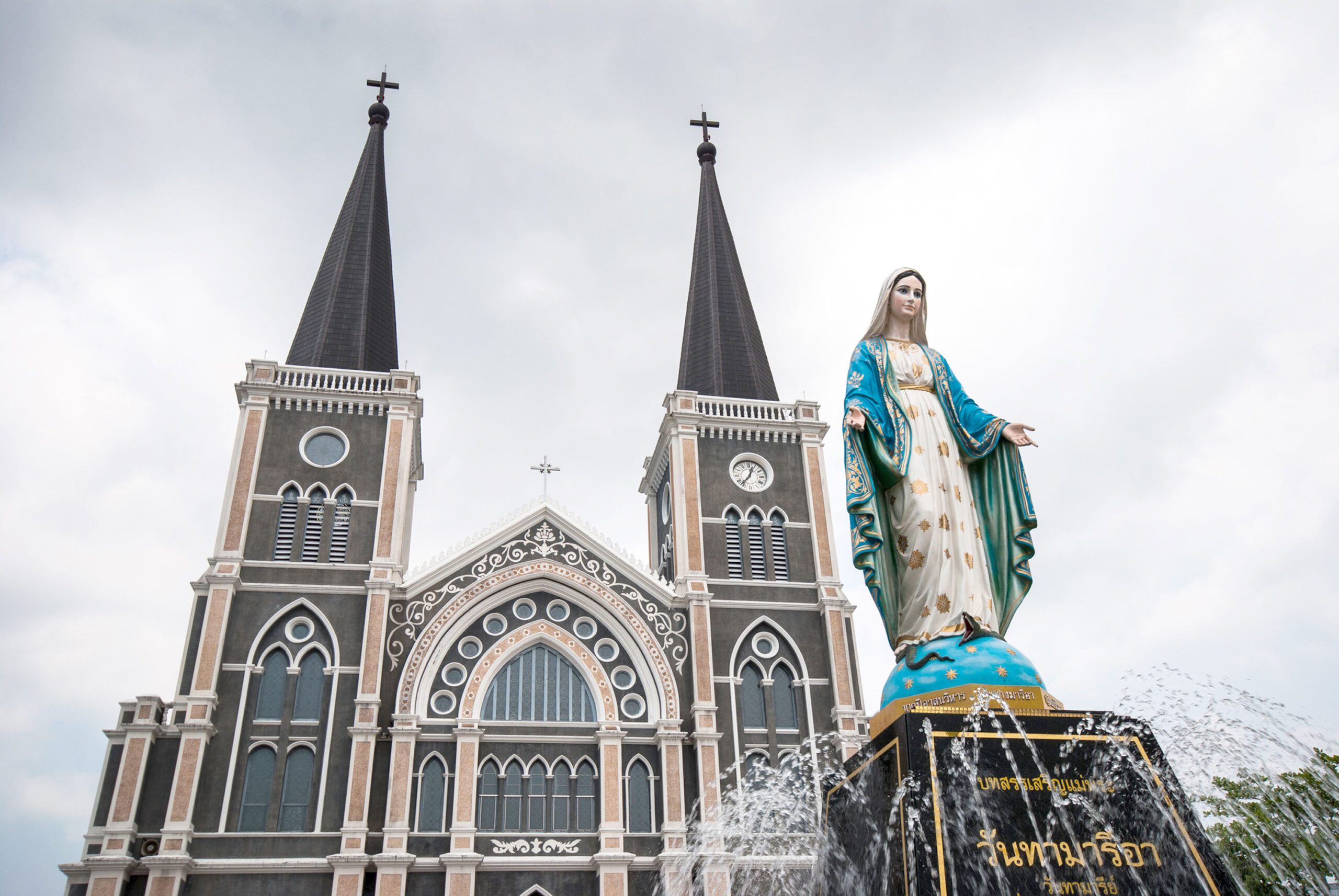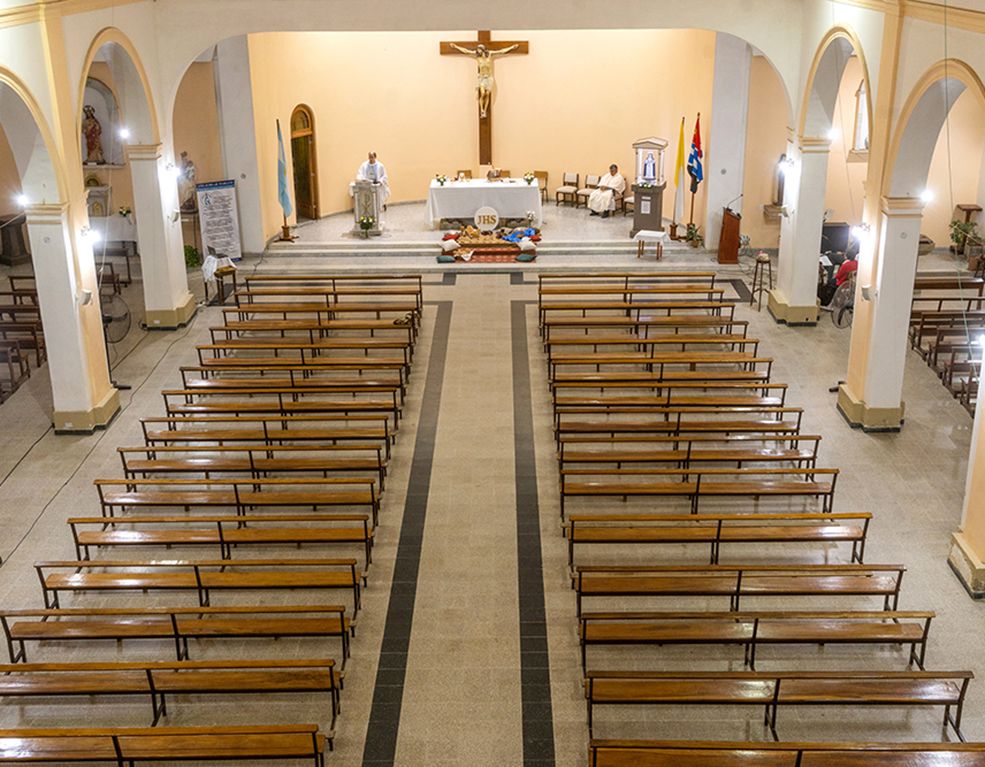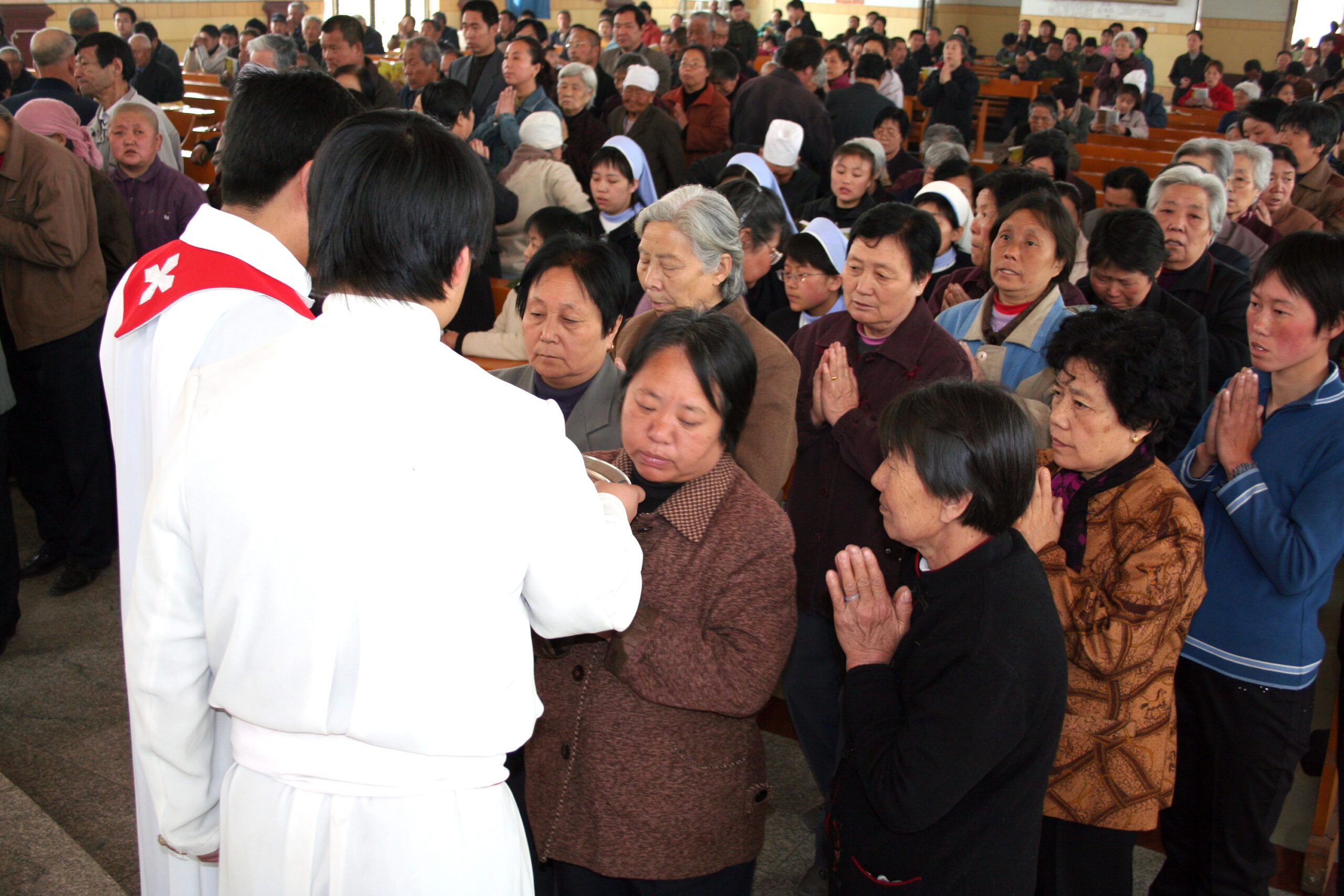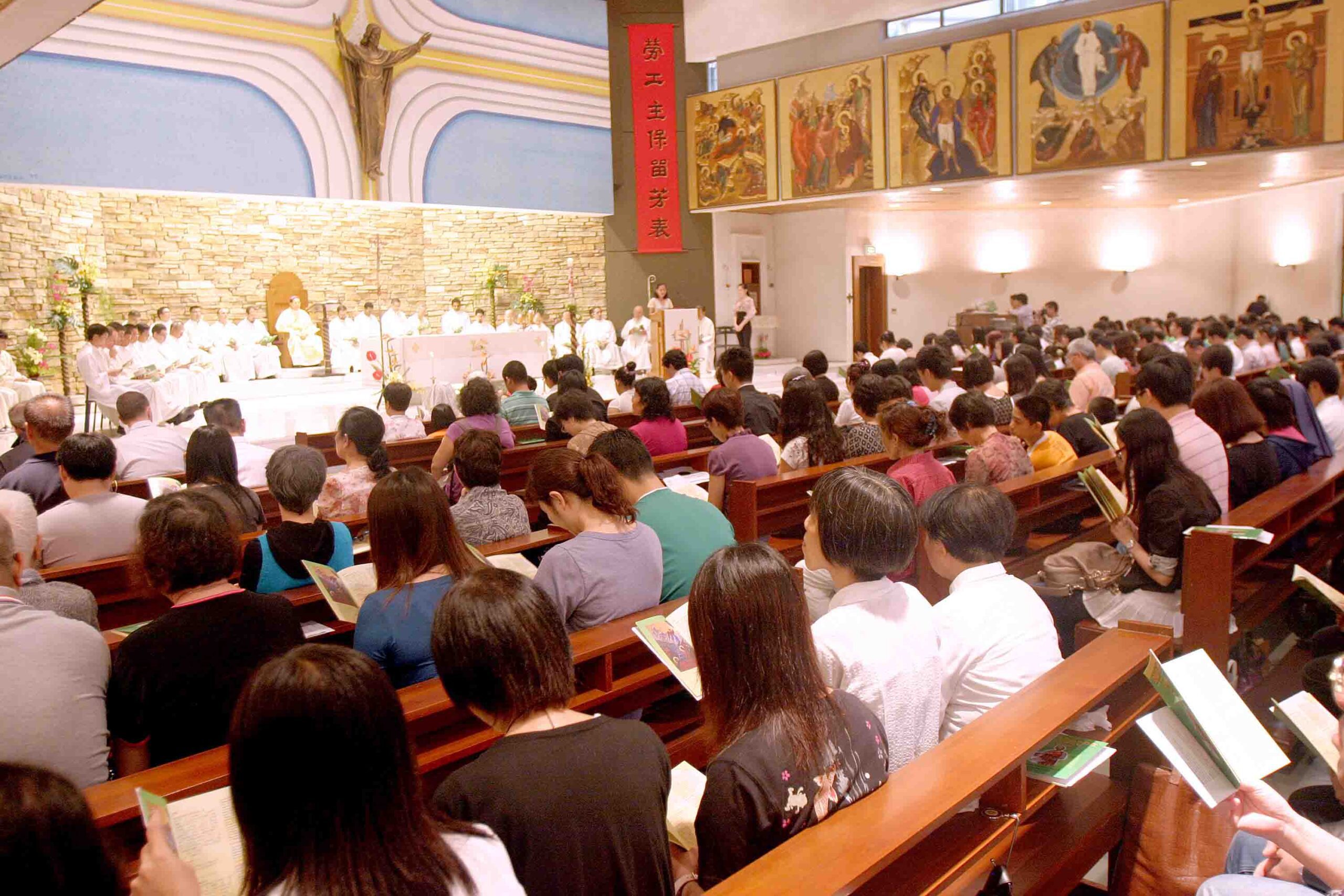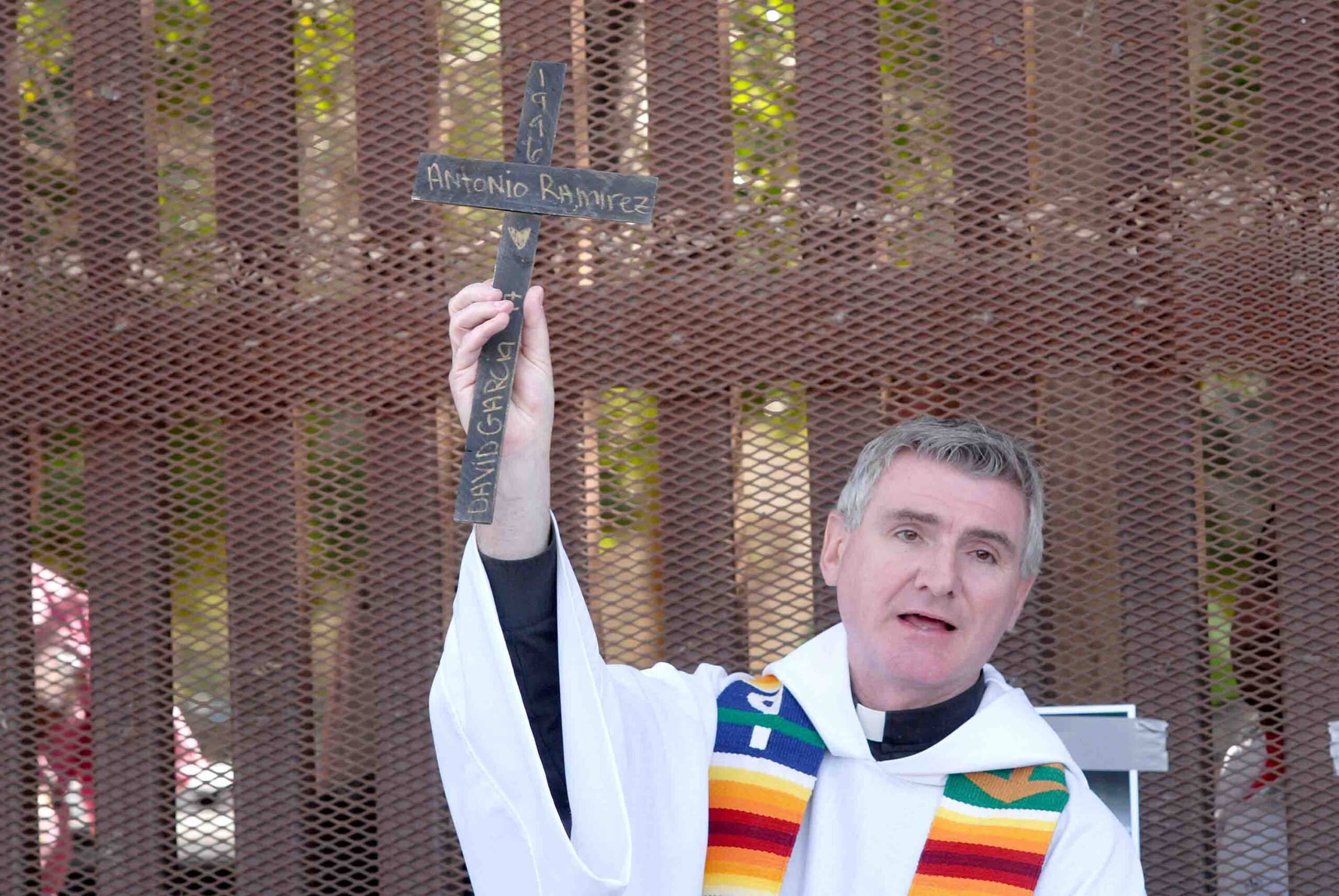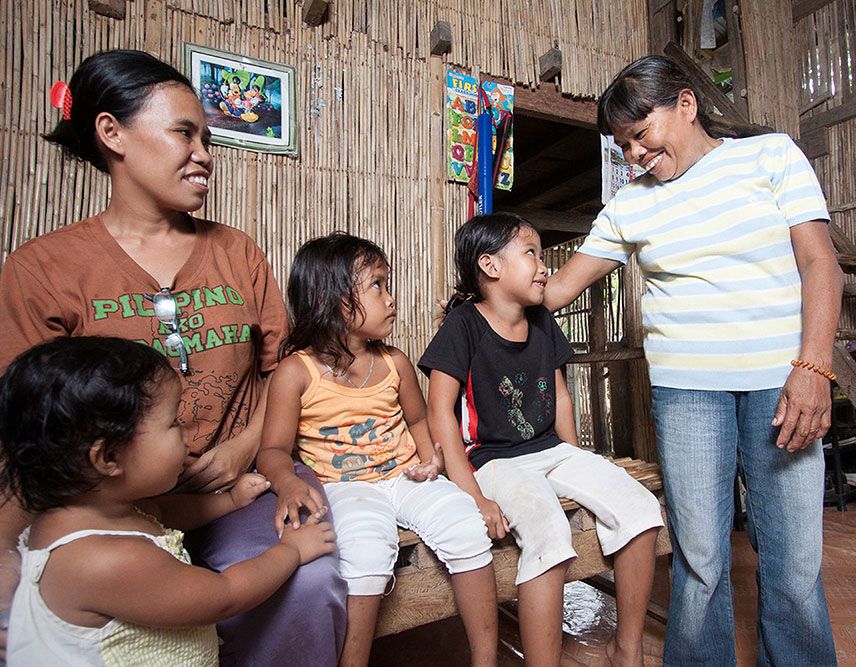“A king is not saved by a mighty army, nor a warrior delivered by great strength. Useless is the war horse for safety; its great strength, no sure escape. But the eyes of the God of peace are upon the reverent, upon those who hope for God’s gracious help.” (Ps. 33:16–18)
Psalm 33 is a hymn of praise to the God of peace and a warning to those who place their hope and trust in the false gods of war. You can’t serve both the God of peace and the weapons of war, it announces. It’s one or the other. Show reverence to the God of peace and live in peace, gratitude and joy, or show reverence to the weapons of war and their false security and die. That’s the message I get from the text. It’s more radical – and helpful – than any spiritual writing you’ll find today. No, you say, this is just pious Bible talk. A king, an emperor, a president are saved by a mighty army, by bombs, by drones, by Trident submarines, by nuclear weapons. That is the logic of every nation, every military, every war. The God of peace cannot save us. Only our weapons and warriors can save us. This is what we have been taught, what we hear preached, why we wave the flag, why we pay taxes to the Pentagon, why we risk radioactive waste, why we threaten to destroy the planet, why we spend nearly all our money on warfare instead of on schools, health care, affordable housing, food for the hungry and environmental cleanup. This is what most of us believe. Might makes right. Violence saves us. War is the will of God.
Not too long ago, one U.S. archbishop said these exact words to me: God cannot save us. Only nuclear weapons can protect us. They are our only hope. Trust in the weapons of war, and the U.S. military has now reached unimaginable heights. According to the 2012–2013 budget, U.S. military spending will exceed the military spending of all other countries in the world – combined. More than half of this year’s budget (54%) goes to the Department of Defense (that is, the Department of War) – $686 billion. China’s budget spends $114 billion for war; France, $61 billion; the United Kingdom, $57 billion; Russia, $53 billion; and Canada $20 billion. Iran pays $8 billion; North Korea, $7 billion; Pakistan, $5 billion; Venezuela, $3 billion; and Syria, $2 billion.
Meanwhile, U.S. taxpayers will pay $121 billion alone for our ongoing warfare in Afghanistan and Iraq. That specific amount could have provided 1.8 million U.S. elementary school teachers for one year; 15.5 million people with low-income health care for one year; or 15.4 million one–year scholarships for university students. Instead, we trust in the weapons of war, and our economy is crashing, our schools are crumbling, millions have no health care, billions suffer in extreme poverty around the world – and we keep building and maintaining weapons that cannot protect us from terrorist attack. Since 2001, we have spent $1.4 trillion for war in Iraq and Afghanistan. That same amount of money would have provided universal health care for all Americans for those same 10 years. What has this war brought us? More than 6,400 U.S. service members killed in Iraq and Afghanistan. More than 300,000 with traumatic brain injuries and PTSD (Post Stress Syndrome). Civilian deaths estimated in the hundreds of thousands. And still, the U.S. ranks 25th in the world in infant mortality, 37th in the world in overall health care, 17th in the world in terms of life expectancy, the highest rate of childhood poverty in the industrialized world, and so forth.
A stark challenge
Psalm 33 presents a stark challenge. Reliance on war, funding for war and waging war are futile. If you place your hope in war, then know that you are not placing your hope in the God of peace. If you trust in weapons and warfare for your security, know that you are not trusting in the God of peace and you are doomed to failure and death. This truth is presented as if it is a law of nature, like a law of gravity. Jesus picks up on the message when He says: If you live by the sword, the weapon, the bomb, you will die by the sword, the weapon, the bomb. Therefore, do not live by the sword, the weapon or the bomb. Live by the way of peace, he says, and you will live. This is the first requirement of the spiritual life, the politics of the spiritual life: Renounce warfare and take up the way of peace. Can we build our lives upon this sacred text? Could we fashion a culture – dare I say, a Judeo/Christian society – after these words? If we did, then we would be blessed with a new spirit of peace in our hearts and lives. The nonviolent Jesus must have studied and prayed through this text because it provides the basic foundation for His Sermon on the Mount. If we likewise pray over and ponder these words, then we would become Sermon on the Mount people who seek to end war, create justice, make peace, offer universal love and welcome God’s reign of nonviolence on earth.
Let all who dwell in the world show reverence … The God of peace foils the plan of the nations … From heaven, the God of peace looks down and observes the whole human race, surveying from the royal throne all who dwell on earth. The One who fashioned the hearts of them all knows all their works … (Ps. 33: 13–15, 8,10)
Psalm 33 calls us to turn back to the God of peace who sees the violence we commit and to live in God’s peace, with gratitude, joy and praise. But the specific word it uses is reverence. Twice, Psalm 33 invites us to become people of reverence. That was one of Albert Schweitzer’s favorite words. Webster’s defines reverence as “a feeling or attitude of deep respect, love and awe for something sacred; veneration. Or a manifestation of this respect, love and awe.” As people of reverence, we maintain an attitude of deep respect, love and awe for the God of peace. We venerate the God of peace. We manifest our respect, love and awe for the God of peace in the way we live. That means we are focused on the God of peace. We bow toward the God of peace. We live in, and through, and for the God of peace. We defer to the God of peace. We seek the God of peace. We breathe in the God of peace, and speak and heed the words of the God of peace. “The eyes of the God of peace are upon the reverent,” we are told, “upon those who hope for God’s gracious help.”
In this spirit of reverence, we take time each day for silent adoration of the God of peace. Then we go through our day with one eye – our third eye, the Buddhists would say – on the God of peace. As we keep our eye on the God of peace, the God of peace keeps both eyes on us. What a blessing! People of reverence are people of mindfulness, peace, nonviolence, love and compassion. Living in reverence leads to equanimity because we are rooted in our attitude of respect, love and awe for the God of peace. This is a good way to live. We need not support the culture of war or be tossed about the media’s glorification of violence, war or stupid politics, or our own day–to–day worries and anxieties. We remain centered, mindful, conscious and alert.
I think many of us want to be people of reverence but we also want, at the same time, to maintain our American culture, its weapons, its wars, its armies and the Pentagon. Psalm 33 insists that we cannot have it both ways. Reject the culture of war, it commands. Learn new ways to resolve conflict nonviolently and return to the God of peace. Then you will be able to reclaim your soul and discover a deep foundation for peace, joy and gratitude as you wait on the God of peace. That’s the conclusion:
Our soul waits for the God of peace who is our help and shield.
For in the God of peace our hearts rejoice. In your holy name we trust.
May your kindness, God of peace, be upon us. We have put our hope in you.
This is a pledge and a prayer. Instead of trusting in America, its military, its drones and its nuclear weapons, we pledge to wait on the God of peace and trust in this peacemaking God to help us and protect us. As we do, we will be given a quiet, inner joy. And so we pray: May your kindness be upon us. That could be a new mantra for us. It invites us to imagine the kindness of God – and then to feel it upon us, within us and around us. Maybe then we will become kinder people and practice the politics of kindness. Psalm 33 suggests that if we turn away from the culture of war, renounce our reliance on weapons and practice a new reverence for the God of peace, for one another and all creation, then the kindness of the God of peace will rest upon us all. That, dear friends, is the best goal worth pursuing.
The false image of God
“Come and see the works of the God of peace who has done awesome deeds on earth, who stops wars to the ends of the earth, breaks the war bow, splinters the war spear, and burns the war shields with fire, who says: ‘Be still and know that I am the God of peace.’ ” (Ps. 46: 9–11)
How refreshing to hear this verse, right in the center of the Bible, from Psalm 46: The God of peace stops wars and dismantles weapons. This is the God who made us, the God who calls us, the living God we will soon meet face to face. This God, it seems to me, is a God worth seeking and knowing. But we don’t hear much about this God these days. I have often thought that the heart of our global crisis comes from our false image of God. Most of us imagine a god who makes war, blesses war, supports our wars and admires our weapons. But this is not the God of Psalm 46 or the God of the nonviolent Jesus. In His Sermon on the Mount, Jesus names God as a peacemaker who practices universal nonviolent love toward all creation by letting the sun shine on the good and the bad and the rain to fall on the just and the unjust. This true image of a nonviolent God changes everything.
As every spiritual director knows, God is always moving in close to us with love and blessings, and every individual responds up to a point and then stops. Every one of us resists the movement of our peacemaking God at some point for some reason, usually because we are afraid of what might be asked of us, even though God usually just wants to love us and be with us like a doting parent. But we don’t realize that we are resisting God. That’s why a spiritual director is so helpful. A good spiritual director is like a coach who sees God’s movement toward us and our movement away from God, and encourages us to go back to prayer and welcome God.
But few talk about our collective, national and global resistance to God. I think all of us seek God – but up to a point. And though collectively, nationally, even globally, we give God some small portion of respect, we certainly do not want to know God collectively, nationally and globally, and do what God might expect of us to do – collectively, nationally and globally. Here, in Psalm 46 and elsewhere, we get a taste of God’s attitude toward the nations and the world; that is, God’s active distaste for war and weapons. Jesus will take this foundational understanding of God much further and announce that God is a God of peace, nonviolence and love.
But this can’t be, we whisper to ourselves. If God is so peaceful, why doesn’t God end our wars, dismantle our weapons and make peace? Psalm 46 insists that the God of peace is, in fact, busy doing just that. You just won’t hear about it on the evening news – or even in church on Sunday. You have to “go and see the works of God” if you want to witness God’s disarming action. That means getting out of our comfort zones and going where the action is. Psalm 46 calls us to learn how wars end, how weapons are dismantled, how peace has come about in history, and how to see the finger of God in this peace movement. Perhaps we are too doubtful or too cynical or too tired to believe God is actively making peace, but if we set out on the journey “to see the works of the God of peace,” I bet we will learn a surprising thing or two and discover what the spiritual life is all about.
Like many others, I can testify that I have seen the God of peace at work to end war – in El Salvador, Iraq, Northern Ireland, the Philippines, Nicaragua, Colombia, Palestine, Mexico, Egypt, India, even here in the USA. This effort to see the peacemaking work of God has cost me, but I thought that’s what the spiritual life was about, what Christian discipleship required. The God of peace is found on the margins, not in the center; on the edge, not in the axis of power; at the bottom, not at the top; among the least, not among the first; on the outskirts of empire, not in its headquarters. If we want to see God and God’s work for peace, we have to go to the margins and the edges, and there we will find God. In the process, we will learn something about faith and our lack of it; fear and the solution of love; peacemaking and all the waste of war–making.
I wonder if the journey of faith only begins once we renounce violence and start the long pilgrimage of loving nonviolence. Once we decide to reject violence and the culture of war, then questions of personal and common security arise. Who will protect us? How will we survive? What is the meaning of life? It’s in that moment, which is relived every day for the peacemaker, when we sincerely call upon God for help and protection. That’s when we start sounding like the psalmist: God is our rock, our refuge, our shield, our strength, our ever–present help, we say. We nonviolent people need God; violent people don’t – they rely on their violence and weapons, which, of course, prove futile. “The God of peace is our refuge and our strength, an ever–present help in distress,” Psalm 46 begins. Even if the earth shakes, the mountains quake, the waters rage, the mountains totter, the nations rage and empires fall – the God of peace is with us, so we do not have to be afraid. That’s a mighty promise, and a way forward through these days of catastrophic climate change, global warfare, economic collapse, and right–wing politics.
A hymn and a guide
“Come, children, listen to me. I will teach you awe for the God of peace. Who among you loves life, takes delight in prosperous days? Keep your tongue from evil, your lips from speaking lies. Turn from evil and do good. Seek peace and pursue it.” (Ps. 34: 12–15)
Psalm 34 was the daily prayer of my friend and teacher of nonviolence, Billy Neal Moore, during his nearly two decades on Georgia’s death row. He was granted clemency in 1990 and now ministers to prisoners in Georgia. Throughout the 1980s, during our near-weekly correspondence, he often wrote about Psalm 34 as his guide to the God of peace and the way of nonviolence. He taught me the beauty and power of Psalm 34, how it can be a guide for us through the doorway to peace. The psalm is a poem. Each line begins with a successive letter of the Hebrew alphabet. Its message and teaching are so simple that we can easily miss its life-changing wisdom. I suppose it would take the daily attention of a prisoner over the course of 20 years to realize it as a path to peace and the God of peace. It reads as a hymn of praise, a guide to daily living, an invitation to wisdom, and a testimony to God’s liberation of the poor and oppressed.
The first part is an invitation to join in praising the God of peace:
“I will bless the God of peace at all times; praise shall be always in my mouth. My soul will glory in the God of peace that the poor may hear and be glad. Magnify the God of peace with me.” (Ps. 34:2–4). Luke probably used this psalm as a basis for Mary’s Magnificat. Both offer a hymn of praise, political denunciation of the rich and powerful, and a call for justice and liberation of the poor. “The powerful grow poor and hungry, but those who seek the God of peace lack no good thing,” we read in verse 11. There is the promise for those who seek the God of peace: Everything we need will be provided for.
The second part testifies to God’s help in our time of need: “I sought the God of peace who answered me, delivered me from all my fears … In my misfortune I called, the God of peace heard and saved me from all distress … Look to the God of peace that you may be radiant with joy.” (Ps. 34: 5–7). If we trust in the God of peace and turn to the God of peace in good times and in bad, God will help us – that’s the message and the testimony. We’re told God delivers the poor, the oppressed, the brokenhearted and the crushed. God is on the side of the poor, the oppressed, the broken-hearted and the crushed. That means, of course, that we are called to be on the side of the poor, the oppressed, the brokenhearted and the crushed; that we are not meant to be rich, oppressors, heartbreakers or spirit–crushers. One day, when our turn comes to be impoverished, oppressed, brokenhearted and crushed, we know God will be there for us. Anyone who seeks to be just, live simply and make peace in this culture of violence and war, we’re told, will have “many troubles,” but the good news is that the God of peace will be there for us. The God of peace has eyes for the just and ears for their cry. God’s face is against evildoers, wiping out their memory from the earth. When the just cry out, the God of peace hears and rescues them from all distress. The God of peace is close to the brokenhearted, saves those whose spirit is crushed. Many are the troubles of the just, but the God of peace delivers from them all.
The third part is the lesson: Learn to savor how good the God of peace is … Come, children, listen to me; I will teach you awe for the God of peace. Who among you loves life, takes delight in prosperous days? Keep your tongue from evil, your lips from speaking lies. Turn from evil and do good. Seek peace and pursue it. I like the word “savor.” Imagine savoring a delicious meal, fine wine or a gorgeous sunset. Here, we’re invited to “savor” the goodness of the God of peace.
It’s consoling to ponder the goodness of God. I remember a moment as a young teenager, lying awake at night, pondering God, savoring God’s goodness, when I consciously realized I was pondering God’s goodness and that God was indeed very good. That was a spiritual breakthrough for me. I knew God was good and, therefore, that God was trustworthy. The more we ponder the goodness of God, the more we come to know God as only goodness, with not a trace of evil, or mean–spiritedness, or war, or oppression. The act of savoring God’s goodness can heal our brokenness and help us to reclaim our own inherent goodness, to re–center ourselves in our own goodness, and then to live our lives in that goodness. In the process, we begin to resemble the God of peace.
Do not speak evil or lies. In the Gandhian framework, that means we speak the truth nonviolently, with love. We choose our words carefully so they do not spread the culture’s untruth and hurt others. We use our words wisely, because words have power to heal or destroy. Some of us may have to go back to square one and practice the art of not speaking for a while, to cultivate the wisdom of silent reflection, thoughtfulness and mindfulness, so that the words we speak become only words of peace, hope and love. Over time, as we pursue the truth of God, we try to speak only the truth. A good Gandhian “experiment with truth” is to try to speak only the truth, and then reflect on how well we did and what it felt like.
One way to practice this nonviolence of tongue and heart in our ordinary day–to–day lives is to use the language of affirmation, which seems to be losing ground in our culture of violence. I think we need to try to affirm one another, to tell others how good they are, to point out the good they do and thank them. We’re pros at criticizing one another, putting each other down and hurting each other, especially in our families and in the church. But we’re novices when it comes to affirming one another. To encourage others to be their best is to help others become nonviolent and make peace. Using the language of affirmation, we can help one another along the road to peace and nonviolence and build a stronger presence of peace in the world.
A lesson from the saints
That is one of the lessons I’ve learned firsthand from the saints I’ve known – people like Dom Helder Camara, Cesar Chavez, Mother Teresa, Archbishop Desmond Tutu, Coretta Scott King, Glenn Smiley, Thich Nhat Hanh, and the Berrigans. They all affirmed and encouraged me, and everyone they met. While speaking the hard truths about war, poverty, racism and nuclear weapons, they also spoke positive words to those around them. Over time, I began to see a common thread in their practice. Turn from evil. Do good. Seek peace. Pursue peace. This is the call of the psalm and the God of Psalm 34. Conversion or metanoia, means “turning around.” Every day, we’re called to turn away from evil. That’s our daily “conversion.” It’s not so much a project or a task – though there may be dramatic moments in our lives when we have to quit an unjust job, stop participating in some form of cultural violence or realize the need to resign from the U.S. military. Turning from evil and doing good becomes an attitude of nonviolence that we carry through our lives. Through our work with various movements for justice and disarmament, we then try to “organize goodness,” as Dr. Martin Luther King Jr. said, and “create a society where it is easier for people to be good,” as Peter Maurin said.
To seek and pursue peace is the heart of the spiritual life. To live at peace with oneself, to cultivate interior peace, and to live in peace with others are the necessary ingredients for our search for the God of peace. Along the way, we try to seek peace with the whole human race, which means we join efforts to oppose wars in Afghanistan, Yemen and Pakistan, dismantle our weapons, and fight corporate greed, extreme poverty and environmental destruction. The church, the sacraments and the Mass are aimed, I believe, at sending us out into the world as peacemakers. If we’re not part of this search, then we’re stuck like everyone else in the culture of violence. We become war–makers and “false gods of war–seekers.” If we are unconsciously seeking and pursuing war – in our hearts, our families, our relationships, our work, in the church, and in the world – then we are not following the wisdom of Psalm 34, much less the Gospel of the nonviolent Jesus. We need to turn from all that is not peacemaking and seek peace and pursue peace every day, every step, every moment for the rest of our lives. As the psalm suggests, we will land in trouble for our peaceableness, but that will be our chance to test our nonviolence.
I think the combination of these teachings is crucial: Speak the truth, and turn from evil, do good, and seek peace. We need to undertake each one of these steps on our journey – to speak, turn, do and seek all at the same time. Ultimately, seeking and pursuing peace means seeking and pursuing the God of peace. That, of course, is our highest calling. Jesus promised us in the Sermon on the Mount, “Seek and you will find.” With that assurance, we know that, one day, we will find peace – and the God of peace, too. Psalm 34 makes that promise as well: “Blessed are those who take refuge in the God of peace.” When all is said and done, that beatitude is enough to go by.
The basics of prayer
“I will listen for the word of the God of peace. Surely the God of peace will proclaim peace to God’s people, to the faithful, to those who trust in the God of peace … Love and truth will embrace; justice and peace will kiss. Truth will spring from the earth; justice will look down from heaven.” (Ps. 85: 9–12)
Psalm 85 is one of the most beautiful prayers, one of the most imaginative poems, one of the greatest pieces of writing in all of literature. Better than Shakespeare, Yeats and Eliot rolled into one. It combines our best prayer for God’s mercy upon humanity, our best hope for God’s word of peace, and our best vision of what that peace might look like. I think this psalm is the hope and vision of the nonviolent Jesus. He dreams this dream and acts upon it, and in His Sermon on the Mount, teaches us how to make this hope and vision come true. His prayer fulfills Psalm 85: “Your reign of peace, your will of justice, be done on earth as it is in heaven.” The text instructs us the basics of prayer, and in doing so, gives us a way forward. All we have to do is listen attentively every day in our contemplative prayer for the word of the God of peace, and then act on that word. If we do, good things will follow. That means we sit in silent meditation and ask the God of peace to speak, wait for God to speak, hear exactly what God has to say, and try to fulfill that word. This is the journey of a lifetime. This is what we will be doing in heaven, so meditation is actually just a practice for the new life of peace to come.
The psalm urges us to build our lives around that word of the God of peace. We let God give us peace and say peaceful, loving words to us, and we thank God for this kindness. Next, we go forward and speak that word of peace to others. We teach that word of peace, and help each other unpack that word of peace. And we try to create the conditions where that word can take root, bear good fruit and, eventually, come to a new harvest of peace. Psalm 85 calls us to live and breathe God’s holy word of peace. It presumes we want to be the people who are faithful to the God of peace. As people who trust the God of peace, we spend our energies heralding a new world of peace: without war, injustice, poverty, violence, killing or nuclear weapons and promoting a new world of nonviolence.
I’ve often wondered what this poem means. What does it mean to say that love and truth will embrace, and justice and peace will kiss? How does truth spring up from the earth and justice look down from heaven? These are beautiful, poetic images, and well worth pondering. We can all name the countless ways hatred and untruth have embraced, that injustice and war have kissed, the myriad times when lies have sprung up and injustice looked down upon us. But it’s harder to imagine love, truth, justice and peace coming together like some cosmic breakthrough.
I think this beautiful, poetic image makes sense only if we are attentively listening to the word of peace from the God of peace, and if we are trying to be the God of peace’s faithful peacemakers.
Psalm 85 always makes me think of Coretta Scott King, whom I so admired and knew slightly. I remember her description of the March on Washington on Aug. 28, 1963, when Martin Luther King Jr. announced his famous dream of reconciliation. She wrote after his death that the sight of hundreds of thousands of people, standing before them at the Lincoln Memorial, was the most extraordinary experience of her life. For a brief moment, she wrote, that sea of smiling, hopeful black and white faces revealed to her the reign of God here on earth. Perhaps there are moments when love and truth embrace, when justice and peace kiss, when the fruit of our work suddenly becomes a harvest of peace. The joyful fall of the Berlin wall; the release of Nelson Mandela from prison and his election as president of South Africa; the People Power movement in the Philippines; the hammering of nuclear weapons in a plowshares action; the victory of Leymah Gbowee in Liberia; and so forth. These historic moments fulfill Psalm 85.
A prayer for all humanity
Psalm 85 invites us to attend to the word of the God of peace, to hear that word of peace, to base our lives on that peace, to speak only that word of peace and to do our small part to help make real that great unforeseeable, unimaginable moment when love and truth embrace, and justice and peace kiss. But if you go back and read Psalm 85, it does not start that way. I’ve jumped ahead to the good part. It begins as a lament. It pleads with God to relent, to forgive us, to let go of anger because of our rejection of God’s way of love and peace, and to give us the gift of life once again. It begs God to save us from our own violent self–destruction. Once, God of peace, You favored Your land, restored Your faithful people’s fortune, forgave their guilt, pardoned all sins, withdrew Your wrath and turned away from anger, the psalmist writes. “Restore us once more, God our Savior … Please give us life again, that Your people may rejoice in You. Show us, God of peace, Your love; grant us Your salvation.”
Scholars say the psalm evokes the prophetic voices of the post–exilic period, around the fifth century B.C. In other words, it was written in the same hopeless, violent, imperial context we suffer through today. In light of our wars, weapons, greed, massacres and environmental destruction, we, too, need to cry out to the God of peace to have mercy on us and help us reclaim the wisdom and sanity of peace and nonviolence. Certainly, that’s my prayer these days. Like many, I spent July 20 mourning those killed and injured during the insane massacre in Colorado. The sick young man who killed and injured all those people just walked into a gun shop and bought weapons of mass destruction and ordered thousands of rounds of ammunition legally online. Toys are regulated, but thanks to the National Rifle Association, weapons intended for mass murder are not. We have to ban AK–47s, handguns and bullets, but also, drones, Trident submarines, nuclear weapons and every weapon of mass destruction. We have to fight the greed and domination among us that leaves billions in poverty and despair. As we ponder this impossible challenge, we realize once again our need for the God of peace. We sense our complete global rejection of the God of peace and God’s gift of peace and turn back on our knees in repentant prayer. Psalm 85 leads to a whole new kind of prayer, a prayer not just for ourselves individually, but for all humanity:
God of peace/ We don’t deserve it, but give us Your peace anyway/ We’ve rejected Your gift of nonviolence, but give us Your gift of nonviolence anyway/ We’ve renounced Jesus’ Sermon on the Mount, but teach us to live by its principles and practices anyway/ Give us the gift of Your reign of peace on earth/ End our wars in Afghanistan, Yemen and Pakistan/ Help us to dismantle our nuclear weapons and weapons of mass destruction/ Help us to close the Pentagon, Los Alamos and all our military bases, and to invest, instead, in nonviolent methods of conflict resolution/ Help us to feed the hungry, heal the sick and abolish poverty so the causes of war are eradicated and everyone can live in dignity with equal justice, that we might welcome Your reign of peace here on earth/ Make us once again, your faithful people, your holy peacemakers/ Amen.
If we can return to the God of peace and pray for God’s gift of peace for the whole human race, like Coretta Scott King and the psalmist, we might be given the vision of truth and love embracing, justice and peace kissing.
Denouncing the idols
“Their idols are silver and gold, the work of human hands.
They have mouths but do not speak, eyes but do not see.
They have ears but do not hear, noses but do not smell.
They have hands but do not feel, feet but do not walk,
and no sound rises from their throats.
Their makers shall be like them, all who trust in them.” (Ps. 115: 4–8)
Psalm 115 may not seem like a psalm of peace, but for me, it gets right to the heart of the matter. Peacemaking requires faith and trust in the living God of peace, as opposed to faith and trust in the culture of war and its idols of death. Over the last three decades, I have heard both Daniel and Philip Berrigan reflect on Psalm 115, and their words surprised and unsettled me. I expected reflections on peace, but heard, instead, a denunciation of the idols of war. It has taken me a long time to understand what they were teaching. They were testifying to their faith in the living God of peace, but they insisted that such faith needs boundaries. Belief in the God of peace in a culture as sick as ours requires renouncing simultaneously and publicly belief in the culture’s false gods of war – the idols of nuclear weapons, Trident submarines, drones, AK–47s and other instruments of killing. In other words, as we name our faith in the God of peace, we likewise denounce the culture’s faith in the idols of war. We have to do both if we want to live in peace.
Approaching Hiroshima Day, when many of us joined local anti–war, anti–nuke protests, I thought this text was worth pondering for further clarity about our stand for peace in faith and our stand against war and idolatry. “The great sin, the source of all other sin, is idolatry and never has it been greater, more prevalent, than now,” Thomas Merton wrote one Good Friday shortly before his death. “Yet, it is almost completely unrecognized precisely because it is so overwhelming and so total. It takes in everything. There is nothing else left. Fetishism of power, machines, possessions, medicines, sports, clothes, etc., all kept going by greed for money and power. The bomb is only one accidental aspect of the cult … We should be thankful for it as a sign, a revelation of what all the rest of our civilization points to: the self–immolation of humanity to its own greed and its own despair. And behind it all are the principalities and powers whom humanity serves in this idolatry.”
“I hold that those who invented the atomic bomb have committed the gravest sin,” Mahatma Gandhi said shortly after the U.S dropped the atomic bomb on Hiroshima and Nagasaki in 1945: “The atomic bomb brought an empty victory to the allied arms, but it resulted for the time being, in destroying Japan. What has happened to the soul of the destroying nation is yet too early to see.” These days, we see the effect of the bomb upon us everywhere – from the collapse of our economy, our destruction of the environment, all our wars, our corporate greed. We have no meaning, no love, no sense of truth, no understanding of our basic humanity. We are soulless. We have become as dead as the metallic weapons we have created and idolized.
Idolatry at its peak
Psalm 115 begins by repeating the taunt that every peacemaker in history has heard: Where is your God? How does this God of peace protect you? Why do you obey your God’s way of nonviolence? “Our God is in heaven,” the psalmist answers calmly, “and does whatever God wants to do.” The psalmist then proceeds to deconstruct the culture’s false gods as empty, lifeless shells, which we insanely worship, and then saves the punch line for last: Those who make these idols become as empty and lifeless as the idols themselves. Those of us who build and maintain weapons of war, greed and violence, Psalm 115 suggests, become like our idols. Those who make peace and serve the living God of peace, Jesus will teach on the other hand, become the sons and daughters of the God of peace. Is this too harsh? The language of the psalms can be very harsh, and the question of idolatry is one that no one wants to face. As Merton writes, idolatry has reached unparalleled heights. We don’t even realize we’re idolaters. Our national idols are gold and silver and the weapons we make with our hands to protect the gold and silver we have stolen from the world’s poor. Idolatry has become the new norm, our ordinary spirituality.
It’s a cliché to speak, for example, of the Golden Calf that is worshipped on Wall Street. But many of us were struck last fall by the 5–foot–tall papier-mâché golden calf that an activist friend made. It was used to lead an interfaith procession from a church in Greenwich Village in New York City down to the Occupy encampment on Wall Street. It was a sight to behold. Everyone got the message. Fewer get the message about our idolatrous nuclear weapons and the spiritual consequences of this idolatry. “The nuclear bomb is the most anti–democratic, anti–national, anti–human, outright evil thing that humans have ever made,” (the Indian author) Arundhati Roy writes. “If you are religious, then remember that this bomb is humanity’s challenge to God. It’s worded quite simply: ‘We have the power to destroy everything that You have created.’ If you’re not religious,” she continues, “then look at it this way. This world of ours is 4 billion, 600 million years old. It could end in an afternoon.”
The war–makers announced that the Pentagon’s 30,000–pound bunker-buster “superbomb” was “ready for use.” “The biggest conventional bomb ever developed is ready,” the spokesperson said.The Pentagon has spent $330 million to develop and deliver more than 20 of these precision–guided Massive Ordnance Penetrator bunker–busters, which are designed to blast through up to 200 feet of concrete:
“They have mouths but do not speak, eyes but do not see … Their makers shall be like them, all who trust in them.”
The lesson? Don’t worship the idols of death. That’s what Dan and Phil Berrigan taught. Be clear where you stand. Know whom you worship and what you do not worship. If you worship the living God of peace, then do not also worship the false gods of money and power, the idols of war and death. That might be our greatest problem. We Americans have deluded ourselves into thinking we can have both. We can have God and nukes, God and money, God and Wall Street, God and empire, God and weapons of war. The psalmist and the Berrigans insist it’s one or the other. God does not allow for other gods. The minute we give in to our worship of these false gods, we reject the living God of peace, going down the path of spiritual death.
The psalmist names the idols as inhuman and ungodly, and the idolaters as inhuman and ungodly, too. We need to name the idols of today as inhuman and ungodly, too, and help each other resist the culture’s idolatry so that we can become more human and more godly. Dan and Phil taught me, like the psalmist, that the surest way to know you are living life to the full and not giving in to the culture’s idols of death is by our nonviolent resistance to the idols. That’s why many of us stood up to commemorate Hiroshima and say “no” to the idolatry of nuclear weapons. Our resistance helps us exercise our faith. It can help us become more aware of our need for the God of peace, and live more consciously in relationship with the God of peace.
Trust in a gentle God
Psalm 115 is a prayer of hope and trust in our quiet, gentle God of peace who does not violently intervene, who mourns our common disbelief and idolatry, and who blesses our small peacemaking efforts, even though we might see few tangible results. “Not to us, God of peace, not to us, but to Your Name give glory because of Your faithfulness and love,” we read. For the psalmist, and the rest of us, our main focus becomes the God of peace. God is the One who is faithful and loving, not us. As we try to remain faithful to the God of peace, we will be blessed with peace.
“May you be blessed by the God of peace who made heaven and earth,” the psalmist concludes. That is the hope and prayer of the psalms of peace, of all peacemakers. As we reject the idols of war and death, choose to be people of faith and trust, look to the God of peace, and practice God’s way of nonviolence, we know we will receive the blessing reserved for peacemakers.
– Excerpts from the texts, that appeared in Fr. John Dear’s column at The National Catholic Reporter site, On the Road to Peace (http://ncronline.org). Edited by Manuel Giraldes.

